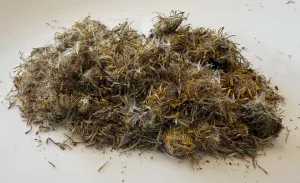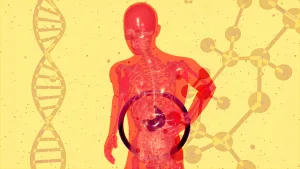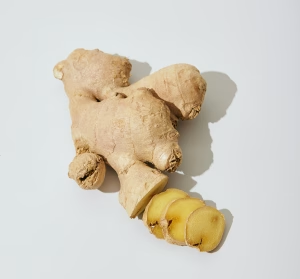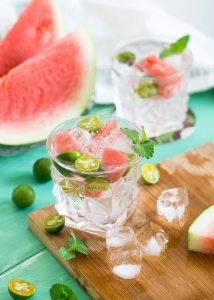Herbal Medicine
Herbal Profile: British Yellowhead
 Meet “Xuan Fu Hua,” or the British Yellowhead flower, an herb commonly used to treat acid reflux, cough, or allergies, outlined in the Divine Farmer’s Materia Medica as “salty, warm, and slightly toxic,” originally indicated for fullness below the rib sides and fright palpitations.
Meet “Xuan Fu Hua,” or the British Yellowhead flower, an herb commonly used to treat acid reflux, cough, or allergies, outlined in the Divine Farmer’s Materia Medica as “salty, warm, and slightly toxic,” originally indicated for fullness below the rib sides and fright palpitations.
Why? How does the Yellowhead flower achieve this?
Salty flavors and their chemistry have a descending action in the body—one that revolves around the manipulation and distribution of fluids—that is so pathogenic fluids can be purged, allowing for healthy fluids to be re-directed, steamed upwards where they belong.
When the heart lacks blood it is more susceptible to fright and palpitations (it isn’t only your anxiety). When the neuromuscular vessels that traverse the ribs lack fluids, we feel pain or tightness. And in many cases of acid reflux the root of the problem is not an abundance of acid, but a lack of fluids and/or electrolytes around our metabolic organs.
Yellowhead flower is not always the magic bullet for all these conditions; but when their root cause is one of gases and fluids in the body failing to descend, perpetuating a vicious cycle that is due to a void of fluids below in the first place, its formulas are a primary route we’ll hope and suspect to be effective. The opposite physiological patterns of GERD will instead be aggravated, because holistic medicine.
The chemical composition of Yellowhead flower includes quercetin, which comes from the white part of grapefruits and oranges and is often sold as a supplement to treat seasonal allergies; caffeic acid, a polyphenol found in coffee beans; and chlorogenic acid, an antioxidant that is also found in coffee beans. This makes sense as the diuretic effect of coffee is obviously a downward one in the body that subsequently lifts functional chemicals upward in turn.
Acid Reflux

There is a concept in Chinese medicine called “Counterflow qi,” which is in reference to when bodily gases or fluids move in the opposite direction from how they are intended. In the digestive process everything is supposed to move down. Don’t get me wrong—not too quickly—but down nonetheless. Any symptom of movement to the contrary is evidence of metabolic dysfunction.
Belching and burping are generally not perturbing to most of their sufferers, possibly apart from the occasional social embarrassment for loved ones. Nevertheless, they are indicative of some degree of weakness and/or inadequacy of vital substances failing to fully process something in the gut.
Vomiting is the extreme version of this, but the principle is the same. Somewhere in between is acid reflux, or “GERD” (gastro-espophageal reflux disease), which usually manifests as symptoms ranging from a burning sensation in the gut, chest, or throat, to a trapped feeling “below the heart,” as Classical Chinese texts would say. Patients experience this anywhere from once or a few times a week if they “eat something wrong,” to incessantly in every waking moment, understandably prompting them to somehow medicate, one way or another.
What causes this? Frankly, metabolic weakness and/or a lack of functional organ fluids, both of which can be caused by all the usual suspects: poor diet, stress, genetic predispositions, and long-term use of pharmaceutical medications.
Ironically, the drugs most commonly prescribed by conventional medicine for GERD, proton pump inhibitors, work by blocking stomach acid, thereby causing more physiological dryness, aggravating the root cause of the condition while muting its branch. This might be okay for a little while for those suffering from “excess patterns,” where the GERD truly is caused by excessive acid—but for those whose symptoms are due more to weakness, such medications will most likely yield a short leash.
Chinese medicine first attempts to distinguish the pattern—which kind of reflux are you? Then we treat accordingly, using acupuncture points and herbal formulas to calm the metabolic organs by imbuing them with more strength, mucosal fluids, and blood, and over time proper directionality of gases and fluids should follow suit.
In the meantime, it is advisable to eat foods that are easy to digest, such as sweet potatoes, steamed vegetables, eggs, fish, tofu, white rice, and/or pasta. Obviously, avoid as much as possible spicy foods and alcohol, refined sugar, dairy, and raw, uncooked foods. (Deep) breathing can be helpful for its inherent function to descend, as can massaging the stomach with both palms of your hands in 36 clockwise circles around the belly button. Empirical symptom management en route to unearthing the root cause of your unique pattern include DGL licorice pills if your pattern is one of weakness, or mint tea if you produce too much acid.
Happy New Year, from DFA!
 A quick re-cap on the year 2025 in the rearview, the “year-view,” if you will, otherwise “year in review” (clearly being a dad is impacting my jokes)!
A quick re-cap on the year 2025 in the rearview, the “year-view,” if you will, otherwise “year in review” (clearly being a dad is impacting my jokes)!
A lot of business as usual in the way of business—my same schedule of 3 days a week in the office, plus one supervising in the school clinic at Pacific College, partially highlighted by our appearance on Ben Aaron’s PIX-11 News segment.
I also gladly welcomed my first ever part-time assistant, Kira Schneider, a great acupuncturist in her own right, with a private practice in Princeton, New Jersey.
This year’s continuing education was also more of the same, as Chinese medicine’s foundational text, the Shang Han Za Bing Lun, takes a lifetime to study and master. In addition to reading my nightly passages, I credit Genevieve Le Goff of California, with most of the knowledge I gained last year.
In the first week of this new year I’ve added to my repertoire, virtually lecturing 2 courses per week on Classical Chinese herbal medicine with the Virginia University of Integrative Medicine, which happens to have a New Jersey campus located just a few miles from my mom.
Speaking of which, Mom’s hangin’ in there, my wife, Dr. Jillian Cohen, just got the first ever fellowship at Hackensack Meridian Health’s Integrative Medicine department approved, and daughter Peyton has since turned 4 and 4 1/4, rapidly approaching 4 1/2, and has not been made aware that she’s about to have her second trip to Disney in two years (hopefully this time sans coronavirus). She remains infatuated with everything princesses and drawing (including occasional household furniture vandalism), and her bilingual Spanish abilities are improving, inevitably to surpass my own.
Curious to hear if anyone has any exciting news from last year and/or regarding the year to come—especially if it’s something I should be sharing on my newsletter to benefit fellow clients and friends.
Black Friday & Raw Ginger

Friendly reminders for the next cold month of holiday season: To ward off cold weather most of the body’s excitatory and invigorating substances rush to the surface, thereby leaving our metabolic and endocrinological layer more vulnerable to cold and/or hypo-functionality. This can be the case even in places like Los Angeles, where the climate is relatively colder than what its inhabitants are used to.
A daily cup of ginger can warm our “more internal parts,” as to do with organs and hormones. I would recommend 3 slices, as depicted here, simmered in 3-4 cups of water for 30-40 minutes. If you’re dealing with sinus and/or respiratory issues you can use 4-5 slices, which changes the chemistry of the ginger to act more upon the lungs. If your physiological pattern includes “blood deficiency,” it is advisable to combine with a teaspoon or tablespoon of honey, or a few red dates, so as to not aggravate dryness.
Little known facts about raw ginger:
- can raise blood pressure and heart rate
- Increases stomach motility and acid secretion
- Evidenced to have an antibiotic effect against Salmonella typhi (Typhoid fever), Vibrio cholerae (Cholera), and Trichomanas vaginalis (an STD). Obviously, consult your physician. If used in such cases it should be within the context of a greater, targeted, customized formula
Second and final reminder: BLACK FRIDAY!
$50 OFF all follow up sessions and $100 off initial visits between now and New Year’s. Exclusions include those with 10 discounted session packages, those receiving superbills, and of course insurance patients.
How to Combat the Humidity

Nobody loves humidity, but many people are more perturbed by it than others, determinable of course by what the humidity is encountering at their surface—that is, what it is physically triggering for them.
Humidity is “damp heat,” so if you already suffer from an excess of systemic damp heat type inflammation at the surface of the body, pouring more of the same on top of that will surely feel awful. What can we do about it?
Nutritionally the ideal foods to combat the damp heat of summer are unfortunately not very fun or exciting, but let’s try to all be grown-ups.
Bitter foods like dandelion greens are great for clearing inflammatory heat, while bland foods, such as unseasoned (or very mildly seasoned) potatoes, barley or barley tea, and plain, steamed vegetables are ideal for leaching damp fluid retention. If this sounds too inconceivable for you, I’d recommend entertaining such discipline just once a day.
Additionally, the bitterness of a good quality, hot green tea and its diuretic effect an aid in draining dampness. Then again, if green tea is unsettling for your stomach you are probably too “cold” for it internally, which unfortunately is not mutually exclusive to having damp heat externally. The former refers to pancreatic and gastrointestinal hypofunction, whereas the latter is part of the inflammation as its logical outcome. See also, eczema due to food allergy.
Instead of over-complicating, over-analyzing, and arguably over-prescribing, all of which I have been more than prone to, for this time of year I recommend at the least “dui yao” (dway-yow) teas, or pairings of 2 simple herbs to drink daily to combat the humidity we’re experiencing, mitigate our unique genetic responses to it, and ensure as productive digestion as possible for the upcoming transition to Fall, when we need our immune system firing on all cylinders!
Examples: Pearl barley and raw ginger if you have a weak stomach, Pearl barley and red dates if you get heart palpitations or dizziness or are on your cycle, Pearl barley and tangerine peel for lack of appetite, or pearl barley and adzuki bean for hemorrhoids, sweaty feet and groin. Are you seeing a trend? This is barley season!
What are everyone’s favorite cinematic depictions of gut-wrenching NYC summer humidity? I vote Do the Right Thing and Weekend at Bernie’s

